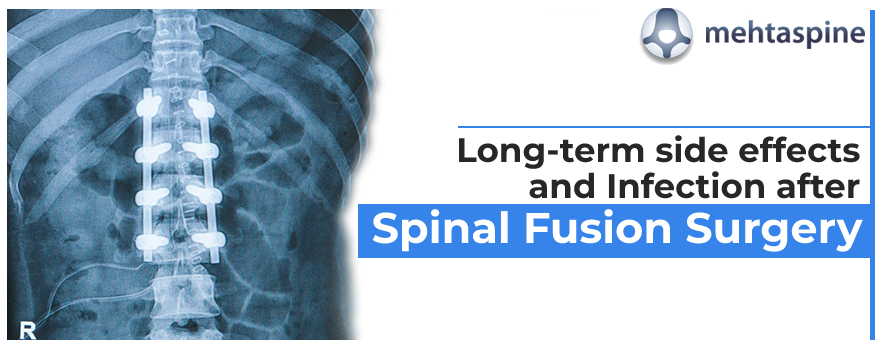Long-term side effects and Infection after Spinal Fusion Surgery
The spinal cord is one of the most delicate and sensitive parts of the body that needs to be taken care of well. Any damage done to this part needs to be treated immediately to ensure there are no permanent or critical effects on the body. The treatment that is most commonly done when a spinal cord injury is faced is called spinal fusion surgery.
What is spinal fusion surgery?
Spinal fusion surgery involves the permanent fixing of two or more vertebrae that have been affected. These are the tiny, interlocking bones present in the spinal cord that provide support to your back. Professionals in the hospitals do this surgery to minimize the chances of any long-term side effects of the spinal fusion.
The surgery is efficient, but many long-term effects are involved after the forgery is performed, which may cause a lot of trouble. This is why this surgery is avoided in most cases.
The long-term side effects of spinal fusion surgery are mentioned below:
- Since the components used in this surgery involve screws, plates, and blots, there is a chance that this hardware used can fail and produce further complications such as hardware failure, spinal muscle injury and adjacent segment disease.
- Various infections can be caused after the surgery is completed.
- Severe blood clots along with excessive bleeding and blood loss are also common side effects of spinal fusion
- Respiratory problems and several reactions to medication are also common side effects of this treatment.
Infection after a spinal fusion surgery:
Along with these side-effects are various infections that happen after the surgery is performed. These infections can range from being minor to severe, depending on the complication and the efficiency of the surgery. The possible infections and their effects are discussed below:
- The infections that are caused due to the intervertebral disc space lead to various difficulties like a problem during urination, back pains, fever, chills, weight loss, muscle spasm, etc.
- This fusion surgery may also damage the adjacent soft tissues during the process that leads to infections. These conditions result in abdominal pain and severe pain in your upper back or hips and thighs.
- These infections that take place in the spinal cord cause the surrounding bones and other parts to become weak and result in them collapsing.
- Suppose the infection is not treated in time. In that case, the severity may increase and result in the affected vertebrae fusing down and continuously press against the nerve roots that cause extreme pain.
To ensure that all your spinal cord complications are treated in a highly safe and successful way, you should consult with a reputed doctor like the spinal surgeon Birmingham. One of the Top doctors for this job is Dr. Jwalant S Mehta. He has excellent knowledge when it comes to spinal cord issues and will provide you with the best treatments that do not involve any sort of risks or dangerous after effects.
In case you need any help, you can contact us here: Clinical secretary: Samantha Leavy +44 785 021 1939


